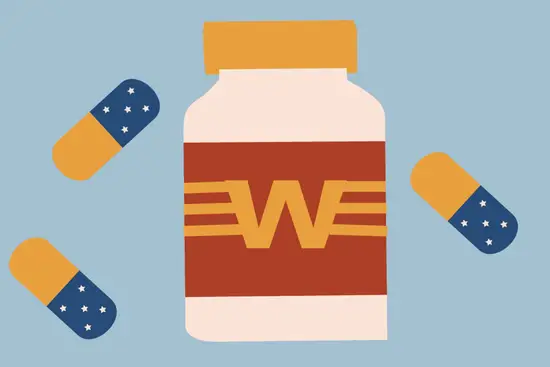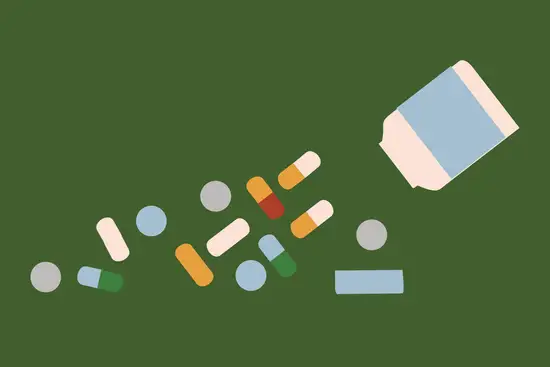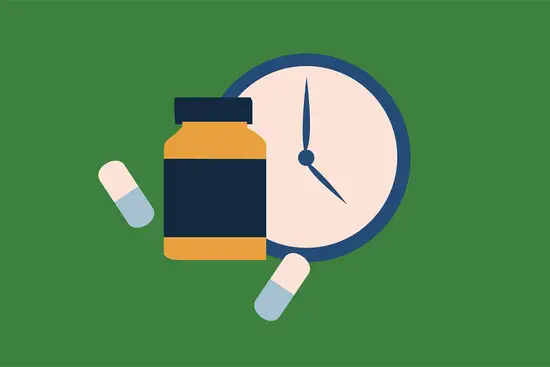Trazodone ― key points
Trazodone is an antidepressant medication that’s often prescribed for the treatment of insomnia, especially in the USA, where it’s sold under the brand names Oleptro or Desyrel.
In the UK, it’s not a popular choice and its use as a sleeping pill is discouraged by medical professionals, unless it’s being used to treat insomnia alongside anxiety and depression.1
In this article, we answer the questions we’re frequently asked about trazodone, and we’ll cover:
- what is trazodone?
- why it’s used for insomnia
- why it’s popular in the USA and not the UK
- its effectiveness as a sleeping tablet
- whether its use comes with any risk
- what the alternatives are.
1 in 5 Americans with insomnia are prescribed trazodone
According to figures from 2019, trazodone is the 25th most prescribed drug in the USA, with around five million people having received a prescription for trazodone in this one year alone.2
In fact, trazodone has been one of the most widely prescribed sleep aids in the USA over the past decade3 and 2022 figures suggest that nearly 20% of Americans with insomnia are prescribed this drug to help them sleep.4
Yet trazodone is not licensed as a treatment for insomnia in America and guidelines from the American Association of Sleep Medicine explicitly state that it should not be used for insomnia.5
It was developed as an antidepressant medication and is used ‘off-label’ for insomnia. This means that it’s being used to treat a problem that it’s not been licensed for. In the UK it’s also not licensed as a sleeping pill and is not recommended for the treatment of insomnia.6
So what is it about trazodone that has led to it being considered a useful sleep medication by some and not others?
In this article we’ll share key facts about the background of this drug, explain why it’s used as a sleep medicine, what the risks of taking it are and whether it is helpful as a treatment for insomnia.
We’ll begin with a look at the history of trazodone and its usage.
Sleep better without trazodone
People who have sleeping problems often turn to trazodone, hoping for a quick fix. Most people don’t realise that there are more effective ways to treat your sleeping issues without side effects. With Sleepstation you can significantly improve your sleep without relying on medication. Sleepstation will help you:
- fall asleep quickly
- get all the sleep you need
- spend less time awake in bed
- wake feeling refreshed.
Sleep better without trazodone
Get support from sleep experts, plus self-help tools.
Working with an expert who really grasps your situation is key to unlocking real sleep, effortless sleep. You deserve to sleep well and to work with people who have the right knowledge and expertise to help you get there.
Begin your journey to a lifetime of better sleep with:
- a full week of unlimited access to our highly-trained sleep coaches.
- direct contact and professional advice, with no waiting lists.
- expert insights to control and repair your sleep.
- lifetime access to an ever-growing library of sleep tools and resources.
What is trazodone?
Trazodone was developed in the 1960s in Italy as a drug to treat depression and has been used to treat major depressive disorder (MDD) since the 1970s.7 It wasn’t until 1981 that it was approved for use in the USA for the treatment of MDD.
It’s not fully known how this drug works, but it’s thought to block nerve cells in the brain from taking up serotonin. Serotonin is a chemical that’s produced in the brain and it’s important for regulating our mood and happiness.
Drugs that increase the levels of serotonin have long been used to treat depression. You may have heard of the more common antidepressant types that work to increase serotonin levels:
- selective serotonin reuptake inhibitors (SSRIs)
- monoamine oxidase inhibitors (MAOIs)
- tricyclic antidepressants (TCAs).
While trazodone does act to increase serotonin levels in the brain, it doesn’t fall into the main antidepressant categories listed above. It’s classed as a regulator of serotonin or, more specifically, it’s a serotonin antagonist and reuptake inhibitor (SARI).
It was the first SARI drug to be approved for usage in the USA and was found to work just as well for relieving symptoms of depression as conventional tricyclic antidepressants, such as amitriptyline which is also given for insomnia.8
Since then, trazodone has also been shown to be just as good or better than several other antidepressants for treating depression, including the popular SSRIs sertraline and paroxetine.9 10
Why is trazodone so popular in the USA?
Firstly, it’s inexpensive.11 It’s been around for a long time so it’s not under patent anymore. This means it can be sold unbranded (in generic form) for relatively little cost, which makes it an affordable choice to prescribe.
Secondly, it’s not considered to be a controlled substance by the US Food and Drug Administration (FDA). Controlled substances are tightly regulated by the US government because they can cause addiction or be abused.
Because trazodone isn’t classified as a controlled substance, it’s possible for doctors to offer it without a limit on how many pills they can prescribe.12
Thirdly, a lot of medications for sleep come with dangerous side effects and an increased risk of dependency. While there are risks of side effects with taking trazodone, it’s not thought to be particularly addictive or lead to dependency.
For all the reasons listed above, it may be considered a less risky alternative to many pills you may be aware of that are used as sleep aids, like Ambien, Xanax or Valium.
In the UK, some doctors do prescribe trazodone both for anxiety and depression. It’s not generally prescribed for insomnia unless the person is also experiencing depression or anxiety.1
Prescription information from the NHS indicates that trazodone is much more expensive than other antidepressants used to treat insomnia, such as mirtazapine,13 14 which may be part of the reason why trazodone is not a popular choice in the UK.
So to recap: trazodone is an antidepressant drug that works by increasing levels of serotonin in the brain to improve mood. So how could this drug help people sleep?
Let’s find out.
Trazodone for sleep
A common side effect of taking trazodone is feeling sleepy or tired.3 This side effect is what highlighted the potential for trazodone to be used as a sleep aid.
When used to help people sleep, the dosage of trazodone prescribed differs from other use cases. For depression, it’s usually given at a starting dose of 150mg/day and for anxiety, it’s generally given at 75mg/day.
Depending on what trazodone is being used to treat, the dose range can be anywhere between 75-600mg/day. When it’s given as a sleep aid, it’s given at the lower end of the dose range, generally between 50-100mg/day.
At these doses, it’s thought that trazodone can induce sleepiness that is enough to help people to sleep, but the effects don’t last long enough to affect the person when they wake.3
We’ve already explained how trazodone can change serotonin levels in the brain, but it also affects the levels of other chemicals that are associated with wakefulness. By blocking these chemicals, trazodone reduces alertness and the end result is that you feel sleepy.15
So when trazodone is given at lower doses, it can make you want to sleep. At higher doses, it can boost your mood.
Side effects of trazodone
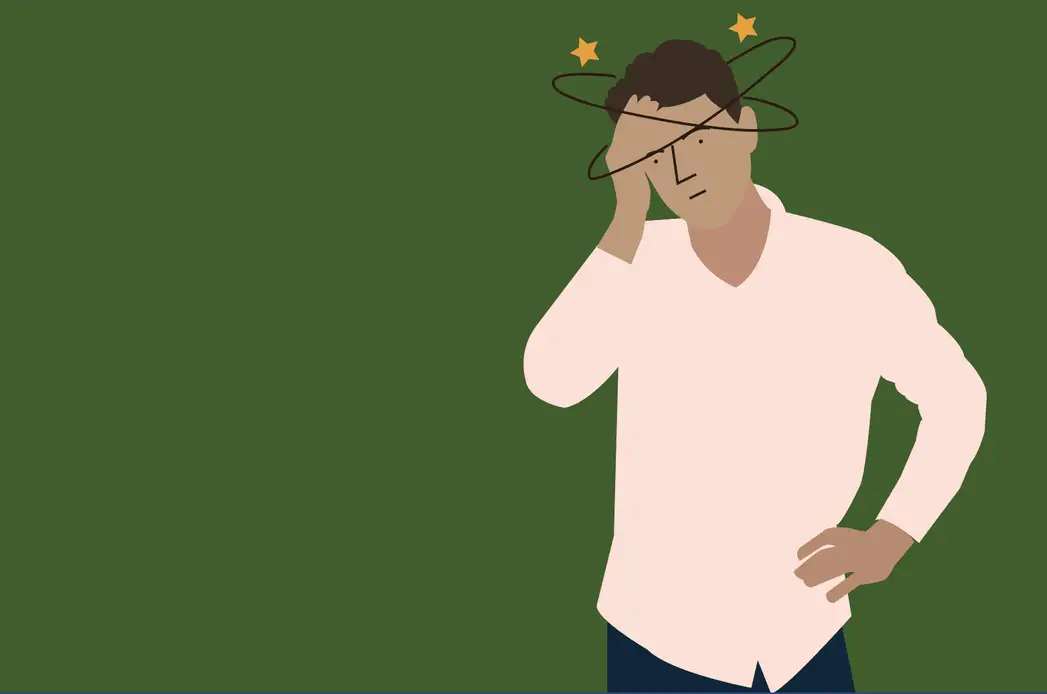
The most comment side effects of trazodone are considered to be mild, including:
- feeling sleepy or tired
- headaches
- nausea or vomiting
- constipation or diarrhoea
- dry mouth
- dizziness
- weight and appetite changes.16 17
There are some more serious side effects of trazodone, which are reported to occur rarely and can include:
- changes to heart rhythms
- anaemia or low white blood cells
- suicidal thoughts
- stroke
- hallucinations
- liver problems.
While the FDA doesn’t consider trazodone to be a controlled substance, it does require the manufacturers to add a black box warning which is a label given to substances that carry significant risk of serious or life-threatening side effects.
Trazodone’s black box warning has been mandated because the drug has been shown to increase the risk of suicidal thoughts and behaviours.
As with all medications, if you’re prescribed trazodone you should only take the dose that your doctor has prescribed for you and let your healthcare provider know if you experience any side effects or have any concerns.
You shouldn’t consume alcohol when you’re taking trazodone as the combination of the two can lead to some dangerous effects, including extreme drowsiness and an increased risk of overdose.
Is trazodone addictive?
Trazodone isn’t considered to be addictive. The risk of addiction is lower than with classic antidepressants or sleeping tablets that you may have heard of like Ambien (zolpidem), Lunesta (eszopiclone, similar to zopiclone) or Sonata (zaleplon).
If you stop taking trazodone abruptly, withdrawal symptoms can occur, so it’s recommended to slowly reduce how much you take over a period of time. If you’re taking trazodone, any changes that you might be planning to make should be discussed with your doctor.
Additionally, abrupt trazodone withdrawal can lead to symptoms including insomnia, so if you’ve been taking this drug to help you sleep, then it’s not a good idea to stop taking it suddenly.
Is trazodone a good sleep aid?
Because trazodone wasn’t designed to be a sleeping tablet, there aren’t a huge number of studies that have looked at whether it’s actually useful as a sleep aid and we don’t know much about how long term use may affect people.
Studies tend to look at whether it can improve insomnia in people who are taking trazodone for depression or insomnia linked to another illness (for example in people with cancer, dementia or Parkinson’s disease).18
It does seem to have some effects on improving how long it takes people to get to sleep and how long people sleep for when taking it.19 While this is encouraging, these effects don’t necessarily continue once you stop taking trazodone.
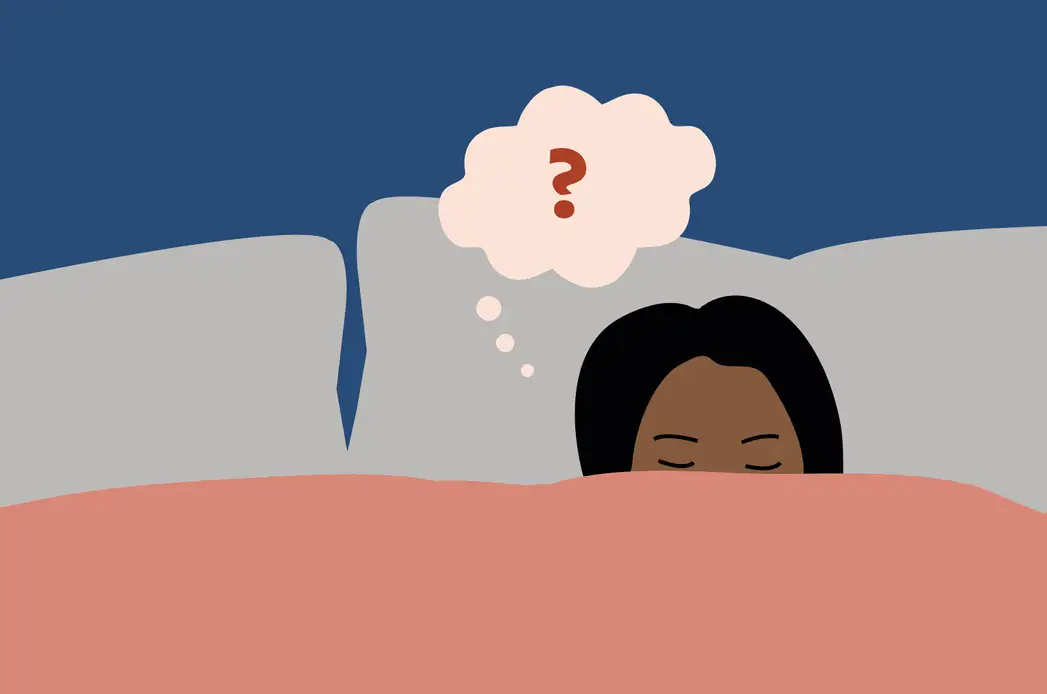
As we’ve already noted, once you stop taking trazodone, you may experience insomnia, so your sleep problem can return or be worse than it was previously. As with all medications taken to aid sleep, the drug won’t treat the sleep problem itself, it can only provide you with some relief from its symptoms.
So you might be asking yourself, “What’s the alternative?” The good news is there’s one treatment that stands head and shoulders above sleeping tablets, getting to the root of your sleep problem and not just masking your symptoms.
Whether in the UK, Europe, Australia or the USA, the experts agree: Cognitive Behavioural Therapy for insomnia (CBTi) is the recommended treatment and should be the first thing you try, before sleep medication.20 21 22
CBTi is a form of talking therapy specifically developed to treat insomnia and it’s incredibly effective. CBTi works for people who’ve tried other forms of CBT in the past but didn’t find those helpful because it’s very specific and focussed.
Though sadly, due to a lack of professionals trained in CBTi across the world, getting an appointment has often meant spending a long time on waiting lists or paying to see someone privately in a sleep clinic, which can be expensive.
We don’t think that’s acceptable. We believe everyone deserves a good night’s sleep and that everyone should have access to the support they need to sleep well, especially those who need it most. That’s why we developed Sleepstation.
We specialise in CBTi and we deliver it at an affordable price. CBTi has decades of strong scientific evidence to support it and it’s incredibly successful in treating even the most severe forms of insomnia.
Unlike drugs such as trazodone, our sleep solution can get to the root of your sleep problem. We can help you to rebuild your relationship with sleep, ultimately taking back control of your sleep. Our sleep solution is totally medication-free and our results are long-lasting.
Sleepstation’s form of CBTi has been clinically validated and can effectively resolve all types of insomnia, even for people who’ve had insomnia for decades.
Your sleep is incredibly important for maintaining your overall mental and physical wellbeing, so cost and lack of access shouldn’t be a barrier between you and the sleep you deserve.
We made CBTi accessible for everyone, whether your sleep problem is recent or has been a dark cloud over your life for years. We can also help you to reduce or completely stop taking sleeping pills, too.
So if your life feels like it’s on hold because of a sleep problem or you’re relying on sleeping tablets just to get through the night, we’re confident we can provide you with an effective way back to sleeping well without medication. We made it accessible to you, it’s now your choice to decide if you want to improve your sleep.
Summary
- Trazodone has been around as an antidepressant for over 60 years, but it became popular more recently as a sleeping pill.
- Trazodone can have a sedative effect, which is why it’s used to help people sleep.
- Taking trazodone won’t fix a sleep problem.
- Trazodone does have some serious side effects.
- Sleepstation is a drug-free solution with long-lasting results.
- We can help you sleep better, forever.
References
- Common questions about trazodone [Internet]. nhs.uk. 2022 [cited 25 April 2022]. Available here. ↩︎
- Sean P, Kane B. Trazodone – Drug Usage Statistics, ClinCalc DrugStats Database [Internet]. Clincalc.com. 2022. Available here. ↩︎
- Jaffer KY, Chang T, Vanle B, Dang J, Steiner AJ, Loera N et al. Trazodone for insomnia: A systematic review. Innov Clin Neurosci 2017; 14: 24–34. ↩︎
- Pochiero I, Gorini M, Comandini A, Calisti F, Loreto GD, Cattaneo A et al. Real-world characteristics and treatment patterns of patients with insomnia prescribed trazodone in the United States. Clin Ther 2022; 44: 1093–1105. ↩︎
- Sateia MJ, Buysse DJ, Krystal AD, Neubauer DN, Heald JL. Clinical practice guideline for the pharmacologic treatment of chronic insomnia in adults: an American Academy of Sleep Medicine clinical practice guideline. J Clin Sleep Med. 2017 Feb 15;13(2):307-49. ↩︎
- Clinical Guidelines on Drug Misuse and Dependence Update 2017 Independent Expert Working Group (2017) Drug misuse and dependence: UK guidelines on clinical management. London: Department of Health ↩︎
- Fagiolini A, Comandini A, Catena Dell’Osso M, Kasper S. Rediscovering trazodone for the treatment of major depressive disorder. CNS Drugs 2012; 26: 1033–1049. ↩︎
- Georgotas A, Forsell TL, Mann JJ, Kim M, Gershon S. Trazodone hydrochloride: a wide spectrum antidepressant with a unique pharmacological profile. A review of its neurochemical effects, pharmacology, clinical efficacy, and toxicology. Pharmacotherapy 1982; 2: 255–265. ↩︎
- Munizza C, Olivieri L, Di Loreto G, Dionisio P. A comparative, randomized, double-blind study of trazodone prolonged-release and sertraline in the treatment of major depressive disorder. Curr Med Res Opin 2006; 22: 1703–1713. ↩︎
- Kasper S, Olivieri L, Di Loreto G, Dionisio P. A comparative, randomised, double-blind study of trazodone prolonged-release and paroxetine in the treatment of patients with major depressive disorder. Curr Med Res Opin 2005; 21: 1139–1146. ↩︎
- Trazodone: 7 things you should know. [Internet] drugs.com 2022 [cited 25 April 2022]. Available here. ↩︎
- Chao S. Is trazodone a controlled substance? [Internet] drugs.com 2022 [cited 7 March 2022]. Available here. ↩︎
- Cost Comparison Charts. Regional Drug and Therapeutics Centre (Newcastle). 2018 [cited 13 October 2022]. Available here. ↩︎
- English prescribing data (EPD).www.nhsbsa.nhs.uk. Available here. (accessed 13 Oct2022). ↩︎
- English prescribing data (EPD).www.nhsbsa.nhs.uk. Available here. (accessed 13 Oct2022). ↩︎
- Shin JJ, Saadabadi A. Trazodone. In: StatPearls [Internet]. StatPearls Publishing, 2022.
↩︎ - Trazodone: MedlinePlus Drug Information [Internet]. Medlineplus.gov. 2022 [cited 7 March 2022]. Available here. ↩︎
- Trazodone: a medicine to treat depression and anxiety [Internet]. nhs.uk. 2022 [cited 7 March 2022]. Available here. ↩︎
- Jaffer KY, Chang T, Vanle B, Dang J, Steiner AJ, Loera N et al. Trazodone for insomnia: A systematic review. Innov Clin Neurosci 2017; 14: 24–34. ↩︎
- Edinger JD, Arnedt JT, Bertisch SM, Carney CE, Harrington JJ, Lichstein KL et al. Behavioral and psychological treatments for chronic insomnia disorder in adults: an American Academy of Sleep Medicine clinical practice guideline. J Clin Sleep Med 2021; 17: 255–262. ↩︎
- Riemann D, Baglioni C, Bassetti C, Bjorvatn B, Dolenc Groselj L, Ellis JG et al. European guideline for the diagnosis and treatment of insomnia. J Sleep Res 2017; 26: 675–700. ↩︎
- Insomnia | Health topics A to Z | CKS | NICE [Internet]. Cks.nice.org.uk. 2022 [cited 11 April 2022]. Available here. ↩︎
